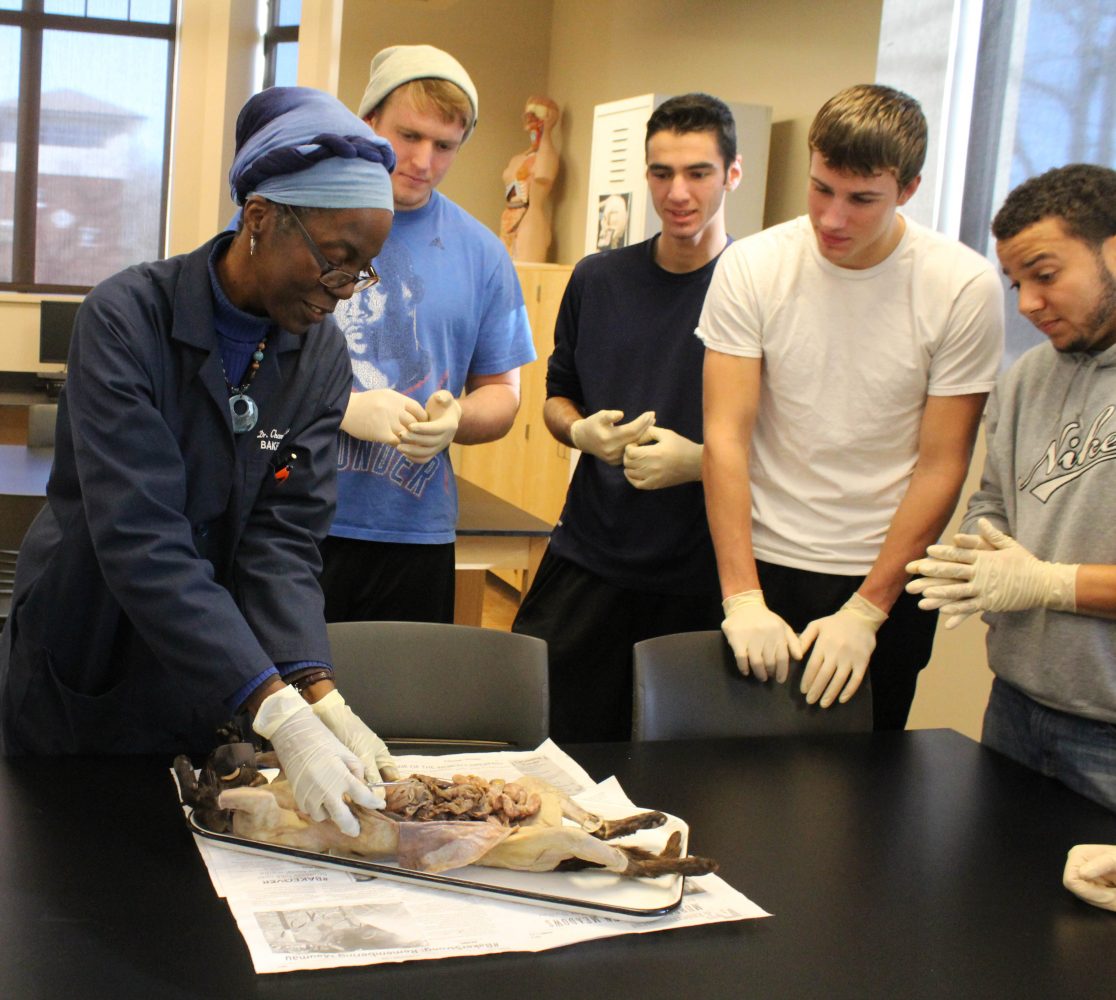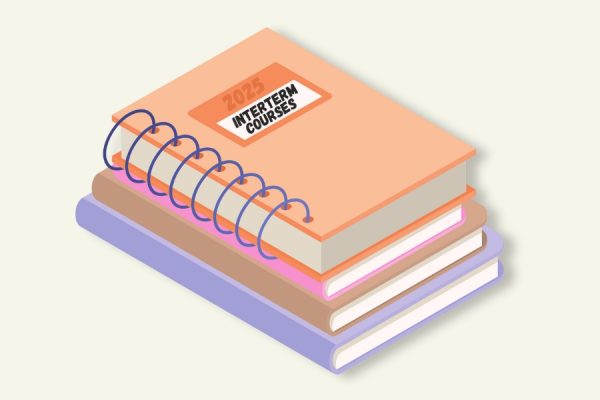Charmaine Henry: Biology from Antigua to Baker
 Dory Smith’s #Worldwide project
Dory Smith’s #Worldwide project
Every Friday, with a smile, she rushed to the local library and borrowed a wide range of books. When she arrived back home she ran back to the cow shed and watched as her grandparents milked a cow and collected eggs from under a chicken.
These early years were the beginning of Associate Professor of Biology Charmaine Henry’s passion for biology and her road to Baker.
“My grandparents had a small farm, and being around plants and animals, I’ve always been curious about living things, and that continued throughout school,” Henry said.
That curiosity led Henry to earning a bachelor’s degree and a Ph.D in biology.
Shortly after graduating, she realized her desire to teach, which she believes stems from having a “family of teachers.”
“We love education,” she said. “We love teaching others, and we love learning.”
After arriving in the United States in 1990 from Antigua, an island in the West Indies, Henry spent four years at the University of Virginia before moving to Kansas in 2000.
Although teaching may be hard work, students are Henry’s biggest motivation.
“Getting to interact with students and seeing how when they understand something, it’s almost like a light shines on them,” she said.
Contributing to that light and transformation is her goal as a teacher.
“To see that change, coming into a university their freshman year and being unsure of what they want to do and to see them when they leave, they’re confident, have goals and a career plan,” Henry said. “To see that change is enriching for me.”
Her efforts are also enriching students who realize the benefits of having Henry as a teacher.
“I can tell she really cares about us learning,” senior Lauren Brown said. “She’s detailed, and if we don’t understand something, she’s very helpful.”
For many students, Henry’s dedication to the subject is the most inspiring aspect of her teaching.
“I didn’t think I would like anatomy as much as I do, but she gets so excited about it, and that makes me want to learn more,” junior Shanetra Minor said.
For Henry, traveling 2,600 miles and transitioning to American culture was a challenging experience.
“Coming from a place where everyone knows each other and interacts well and coming to the states where not many people interact was kind of strange to me,” she said.
In 2013, Henry became American by naturalization. Although adapting to the American lifestyle was difficult, her diverse background made adjusting to Baker an easy task.
Growing up in the Caribbean Islands, she experienced cultures ranging from French to Chinese, which helped her not to focus on appearance and ethnicity.
“Being here and not seeing another black face didn’t bother me,” Henry said.
Acceptance and appreciation of all human value is the more idealistic meaning of diversity, according to Henry.
“To me it’s more about the person and not so much the ethnic background,” she said. “We could look at people in terms of their experiences or abilities, which could be very different, so it’s more than just what we look like.”
As the years progress, she has started thinking about what she will do when she retires.
For many, retirement means traveling the world or spending more time with family, but for Henry it means returning home and becoming an asset to a small place in need of educators.
“I’m hoping that toward retirement (I will) build connections back in the islands because I eventually want to go back there and contribute to the society that I left behind,” she said.
Henry hopes to leave the Baker’s biology program in a stronger state than when she arrived.
“I hope our department has turned out students who really make an impact wherever they go,” she said. “Science is growing and I hope that (our) students will be some of the leaders.”
Until then, the little girl who had a wandering eye for living things will sit in her office surrounded by crafted animal skeletons and blossoming plants.







